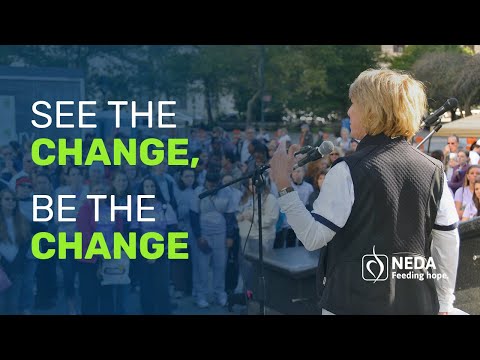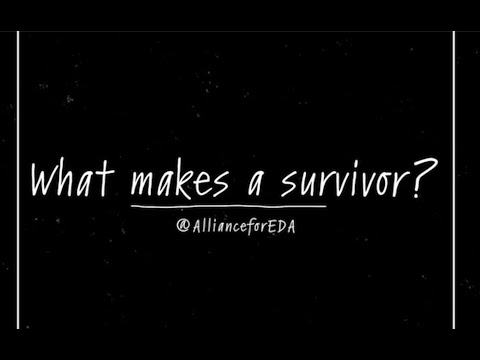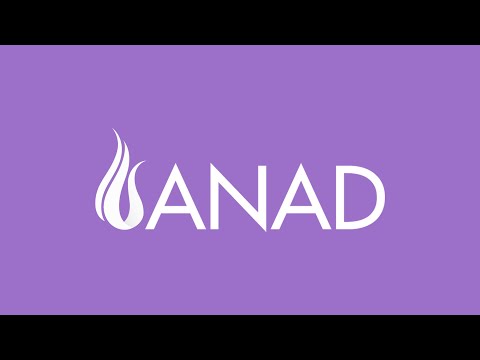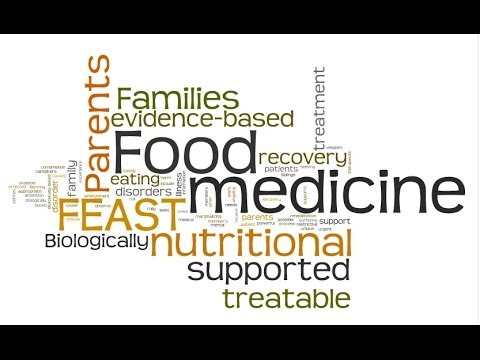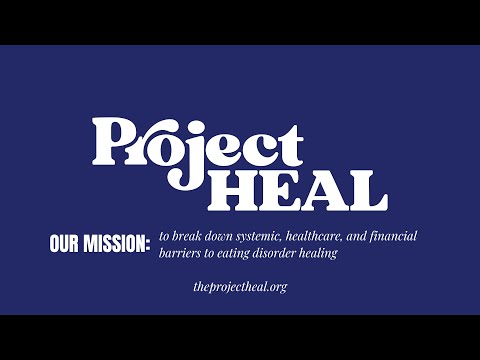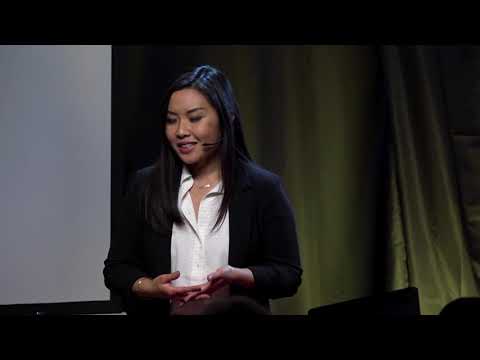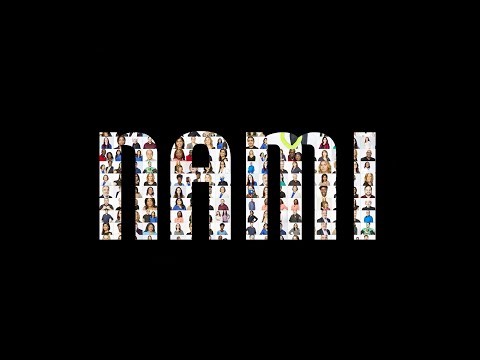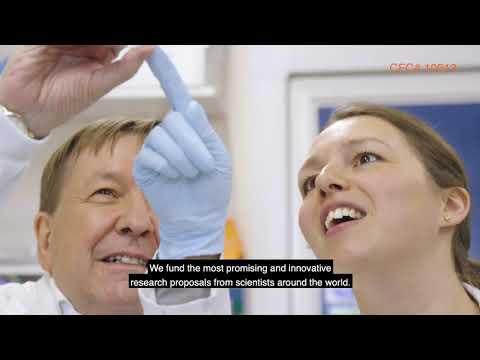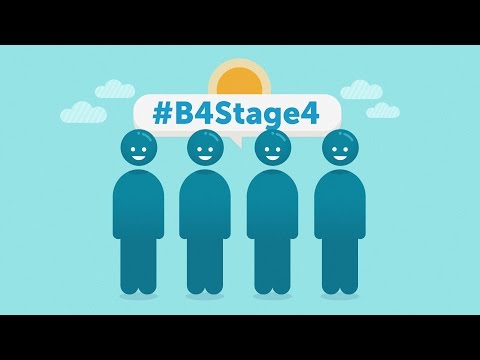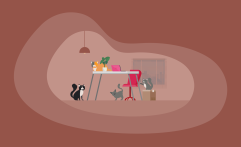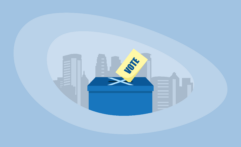9 Best Charities That Combat Eating Disorders (Complete 2024 List)
Impactful Ninja is reader-supported. When you buy through links on our site, we may earn an affiliate commission.
Learn more
Learn more
.
Hey fellow impactful ninja ? You may have noticed that Impactful Ninja is all about providing helpful information to make a positive impact on the world and society. And that we love to link back to where we found all the information for each of our posts. Most of these links are informational-based for you to check out their primary sources with one click. But some of these links are so-called "affiliate links" to products that we recommend. First and foremost, because we believe that they add value to you. For example, when we wrote a post about the environmental impact of long showers, we came across an EPA recommendation to use WaterSense showerheads. So we linked to where you can find them. Or, for many of our posts, we also link to our favorite books on that topic so that you can get a much more holistic overview than one single blog post could provide. And when there is an affiliate program for these products, we sign up for it. For example, as Amazon Associates, we earn from qualifying purchases. First, and most importantly, we still only recommend products that we believe add value for you. When you buy something through one of our affiliate links, we may earn a small commission - but at no additional costs to you. And when you buy something through a link that is not an affiliate link, we won’t receive any commission but we’ll still be happy to have helped you. When we find products that we believe add value to you and the seller has an affiliate program, we sign up for it. When you buy something through one of our affiliate links, we may earn a small commission (at no extra costs to you). And at this point in time, all money is reinvested in sharing the most helpful content with you. This includes all operating costs for running this site and the content creation itself. You may have noticed by the way Impactful Ninja is operated that money is not the driving factor behind it. It is a passion project of mine and I love to share helpful information with you to make a positive impact on the world and society. However, it's a project in that I invest a lot of time and also quite some money. Eventually, my dream is to one day turn this passion project into my full-time job and provide even more helpful information. But that's still a long time to go. Stay impactful,Affiliate Disclosure
Why do we add these product links?
What do these affiliate links mean for you?
What do these affiliate links mean for us?
What does this mean for me personally?
![]()
An estimated 30 million people in the US will be diagnosed with an eating disorder in their lifetime. Despite common misconceptions, eating disorders can affect anyone, regardless of gender, age, race, or size. And, they can be fatal if left untreated; in fact, one person dies every 52 seconds as a direct result of their eating disorder. Yet, only 10% of those with eating disorders ever receive treatment. Fortunately, organizations around the world are working to raise awareness, provide support, and increase access to treatment for people living with eating disorders. So, we had to ask: what are the best charities that combat eating disorders?
The best charities that combat eating disorders are the National Eating Disorder Association and the National Alliance for Eating Disorders. Charities such as Mental Health America and FEAST work to improve the lives of those with eating disorders through peer support.
Whether you want to help a concerned family member to support a loved one struggling with an eating disorder, ensure a person recovering from anorexia nervosa or bulimia has access to the resources they need to heal, or fund research to better understand and treat eating disorders, there is a charity for you. Keep reading to learn more about what the best charities that combat eating disorders are all about, how they work, and what your best way would be to make a contribution.
Here’s What All the Best Charities That Combat Eating Disorders Have in Common
The charities on this list were chosen based on their mission, impact and transparency ratings, and achievements.
The majority operate primarily throughout the US and Canada, but some combat eating disorders internationally.
Many of these charities provide direct support to people with eating disorders. Others ensure that the families and caregivers of those suffering have the support and tools they need to help their loved ones to heal.
Some offer direct assistance by providing resources and educational materials, while others work toward a brighter future for those with eating disorders by funding research and raising awareness.
Yet, they all share a common goal; to combat eating disorders and help those affected to lead more productive and fulfilling lives.
These Are the 9 Best Charities That Help Combat Eating Disorders in 2024
Below are our favorite charities that help combat Eating Disorders (you can click on their link to directly jump to their section in this article):
Best Charities That Help Combat Eating Disorders
(At the end of this article we’ll also share our six-step approach on how you can select the best charity to support.)
National Eating Disorders Association: Turning Suffering into Healing
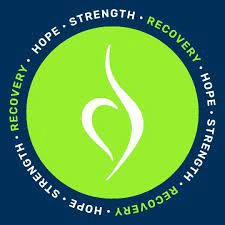
🔎
Their transparency & ratings:
Charity Navigator gives the National Eating Disorder Association a 3-star rating. GuideStar gives the charity a Silver Seal of Transparency.
“Feeding hope.”
National Eating Disorders Association
⚒️
What they do:
The National Eating Disorders Association combats eating disorders by providing programs and services designed to support those affected in overcoming their illness. For example, their online Eating Disorders Screening Tool helps people ages 13 and up determine when to seek professional guidance. And, their website contains resources for recovery such as their Helpline, and access to an extensive list of treatment providers across the US. Furthermore, they host events such as NEDAWalk and NEDAwareness Week, which bring awareness and funding to the fight against eating disorders.
🚀
What they’ve achieved:
Since their founding, the National Eating Disorders Association has helped millions of people suffering from eating disorders to find the help and support they need. For example, in 2019 alone, their NEDAwareness Week campaign reached over 303.4 million people via social media, and more than 145,000 people completed their Eating Disorders Screening Tool. In the same year, they merged with the National Association for Men with Eating Disorders, cementing their commitment to reach underrepresented populations within the eating disorder community.
✨
Ways to contribute:
You can donate to the National Eating Disorders Association via their website. You can also get involved by participating in a NEDAWalk event in your community or by becoming a group support facilitator for The Body Project.
National Alliance for Eating Disorders: Recovery and Education

🔎
Their transparency & ratings:
Charity Navigator gives the National Alliance for Eating Disorders a 3-star rating. GuideStar gives the charity a Platinum Seal of Transparency.
“Walking you through recovery.”
National Alliance for Eating Disorders
⚒️
What they do:
The National Alliance for Eating Disorders provides support to people suffering from eating disorders through education, referrals, and advocacy. For example, they facilitate the initial phase of recovery through their referral services, including their national database of providers, which connects people with eating disorders to treatment options at all levels of care. Furthermore, they host free, weekly support groups for people with eating disorders; these therapist-led sessions provide participants with a community of understanding and support. Additionally, they spread awareness of eating disorders through community outreach projects and education.
🚀
What they’ve achieved:
Since their founding, the National Alliance for Eating Disorders has impacted the lives of thousands of people affected by eating disorders. For example, in 2021 alone, their referral services helped 163,398 people start their journey toward recovery. In the same year, 16,953 people participated in their support groups, and 29,415 people attended their educational events.
✨
Ways to contribute:
You can donate to the National Alliance for Eating Disorders via their website. You can also get involved by volunteering or interning with the organization, or by attending an event.
National Association of Anorexia Nervosa and Associated Disorders: Peer Support for Healing
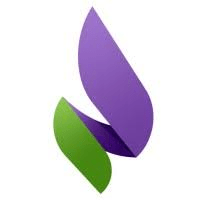
🔎
Their transparency & ratings:
GuideStar gives the National Association of Anorexia and Associated Disorders a Silver Seal of Transparency.
“Eating disorder recovery is possible. ANAD is here to help.”
National Association of Anorexia Nervosa and Related Disorders
⚒️
What they do:
The National Association of Anorexia Nervosa and Associated Disorders combats eating disorders through peer support services. Their network of volunteers is composed of eating disorder survivors who provide various levels of support to those still suffering. For instance, their Eating Disorder Helpline provides users with instant access to basic support, while their Recovery Mentor program pairs patients and volunteers one-on-one to provide more in-depth, long-term support. Additionally, their virtual peer support groups connect people with eating disorders with other sufferers to create a community of guidance and understanding. Furthermore, they disseminate educational materials, such as their Support at Every Stage guide, to loved ones of those struggling with an eating disorder.
🚀
What they’ve achieved:
Today, the National Association of Anorexia Nervosa and Associated Disorders provides vital support to over 200 people every week who are suffering from an eating disorder. They also adapt their services to meet the needs of diverse communities. For example, their peer support group program includes several special interest groups, including LGBTQ+, BIPOC, and teens and young adults. Furthermore, in 2021, they proposed a set of guidelines to promote inclusive care in treatment centers across the US.
✨
Ways to contribute:
You can donate to the National Association of Anorexia Nervosa and Associated Disorders via their website. You can also get involved by becoming a Helpline volunteer, Recovery Mentor, or a Peer Support Group Leader.
Families Empowered and Supporting Treatment for Eating Disorders (FEAST): Families Helping Families
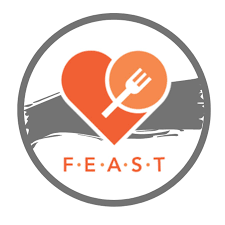
🔎
Their transparency & ratings:
GuideStar gives FEAST a Gold Seal of Transparency.
“We are here because we’ve been there.”
FEAST
⚒️
What they do:
FEAST’s programs and services provide support, information, skills, and tools to families of eating disorders patients as they fight the disease. For example, their FEAST 30 Days program is designed to educate and empower caregivers through one virtual lesson a day for 30 days. In addition, their Around the Dinner Table Forum provides parents with peer support through a moderated online discussion board. Furthermore, they supply parents with printable quick reference pamphlets on topics related to eating disorders, such as nutrition and neurobiology, through their FEAST Family Guides Series.
🚀
What they’ve achieved:
Since their founding, FEAST has supported over 10,000 families across 70 countries to help their loved ones navigate eating disorders. For example, in 2021, the Association educated over 5,000 people through their website. In the same year, over 3,800 people registered for their FEAST 30 Days program, and over 2,800 people joined the Around the Dinner Table Forum and Facebook Community.
✨
Ways to contribute:
You can donate to FEAST via their website. You can also get involved by volunteering for a fundraising committee or as a technical specialist.
Project HEAL: Ensuring Treatment Equity

🔎
Their transparency & ratings:
Charity Navigator gives Project HEAL a 3-star rating. GuideStar gives the charity a Platinum Seal of Transparency.
“We open doors to healing for those who the system fails.”
Project HEAL
⚒️
What they do:
Project HEAL helps people who might typically struggle to receive care to gain access to quality treatment for eating disorders, specifically members of the LGBTQ+, BIPOC, and other marginalized communities. For example, their Clinical Assessment Program provides free, impartial, and culturally competent screenings to anyone in the US who believes they might be suffering from an eating disorder. Furthermore, their Treatment Placement Program provides beneficiaries with extended treatment within their HEALers Circle network of providers at little to no cost. And, they provide cash assistance when needed, and also offer Insurance Navigation.
🚀
What they’ve achieved:
Since their founding, Project HEAL has improved treatment equity for thousands of people across the US seeking access to treatment for eating disorders. For example, in 2021, they provided over $2 million in free treatment services to underserved communities. Furthermore, in 2020, they formalized a partnership with the National Association of Anorexia Nervosa and Associated Disorders to merge their peer-support services, allowing them to help even more people suffering from eating disorders.
✨
Ways to contribute:
You can donate to Project HEAL via their website. You can also get involved by becoming a Project HEAL Ambassador, or by volunteering.
SeekHer Foundation: Bridging the Gender Gap of Mental Health

🔎
Their transparency & ratings:
The SeekHer Foundation is a charitable project supported by the Social Good Fund, which receives a 94% rating for Finance and Accountability from Charity Navigator. The fund also holds the GuideStar Silver Seal for Transparency.
“When we power more women, we power more good.”
The SeekHer Foundation
⚒️
What they do:
The SeekHer Foundation pinpoints challenges that impact women’s mental health and identifies actionable solutions through advocacy campaigns, research, and funding support. They combat eating disorders by promoting body positivity through various campaigns and partnerships. For example, they fundraise to support body image programs in schools through their #MyBodyCan fundraisers, in partnership with Athleta and WellSeek. In addition, their SeekHer Scholars program provides body-inclusive mentorships and trainings for the next generation of mental health professionals.
🚀
What they’ve achieved:
Since their founding, the SeekHer Foundation has provided mental health resources and self-care tools to over 3,600 students and connected over 212,000 women with wellness resources, including those with eating disorders. For example, in 2021, they launched SeekHer Shift, a survey initiative that engaged over 1,100 women across the US. It identified the most pressing challenges to women’s mental health to guide future support efforts, including body image and eating disorders.
✨
Ways to contribute:
You can donate to the SeekHer Foundation via their website. You can also host a school fundraiser, start a giveback initiative, or apply to be a SeekHer Scholar.
National Alliance on Mental Illness: Raising Awareness and Providing Resources
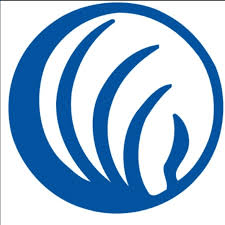
🔎
Their transparency & ratings:
Charity Navigator gives the National Alliance on Mental Illness a 4-star rating. GuideStar gives the charity a Platinum rating for transparency.
“Changing the mental health conversation, together.”
National Alliance on Mental Illness
⚒️
What they do:
The National Alliance on Mental Illness improves the lives of those with eating disorders and other mental health disorders through advocacy, education, support, and public awareness. For example, their education program features classes for people with mental illness as well as stakeholders such as family members, significant others, and providers. They also provide peer support to those seeking guidance and resources via their 24-hour HelpLine. In addition, they provide comprehensive information about eating disorders on their website, including treatment options, and how to cope if you or someone you know is experiencing symptoms.
🚀
What they’ve achieved:
Today, the National Alliance on Mental Illness helps people struggling with their mental health through their network of over 600 affiliates and 49 state organizations across the US. For example, in 2021, they distributed $3.5 million in grants to advance the work of their network and to support more people. In the same year, their annual fundraiser, NAMIWalks Your Way raised $13.1 million across 122 events with over 40,000 participants nationwide. In addition, the charity’s advocacy efforts were integral to the launch of the 988 crisis number, a helpline for those suffering from anxiety, eating disorders, depression, and suicidal thoughts.
✨
Ways to contribute:
You can donate to the National Alliance on Mental Illness via their website. You can also contribute by registering to participate in NamiWalks Your Way or by volunteering to work on the HelpLine.
Brain & Behavior Research Foundation: Funding Mental Health Innovation
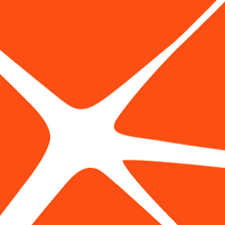
🔎
Their transparency & ratings:
Charity Navigator gives the Brain & Behavior Research Foundation a 3-star rating. GuideStar gives the charity a Platinum Seal of Transparency.
“Funding cutting-edge research to find cures for mental illness.”
Brain & Behavior Research Foundation
⚒️
What they do:
The Brain & Behavior Research Foundation improves the lives of people with eating disorders and other mental illnesses by funding the most innovative ideas in neuroscience. They do this by awarding grants to scientists researching new ways to understand, prevent, and treat eating disorders and other mental illnesses. For example, one of their 2017 grant recipients led the largest genetic study of anorexia nervosa to date, identifying genetic risk factors for the disease.
🚀
What they’ve achieved:
Since their founding, the Brain & Behavior Research Foundation has awarded more than $430 million to fund more than 6,200 grants in mental health research, with $3.7 million going toward research specifically for eating disorders. Their funding has directly contributed to some of the biggest breakthroughs in the mental health community, including studies investigating eating disorder treatment and brain circuits, non-invasive brain stimulation, and computer-guided early diagnosis of mental illness.
✨
Ways to contribute:
You can donate to the Brain & Behavior Research Foundation via their website. You can also get involved by sponsoring an event or creating your own fundraiser.
Mental Health America: Action Before Crisis
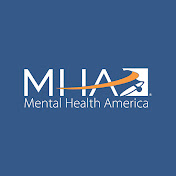
🔎
Their transparency & ratings:
Charity Navigator gives Mental Health America a 4-star rating. GuideStar gives the charity a Platinum Seal of Transparency.
“Crisis is not a starting point.”
Mental Health America
⚒️
What they do:
Mental Health America promotes mental health and the prevention of mental illnesses, including eating disorders, through advocacy, education, research, and integrative services. For example, through education and outreach, they help people of all ages better understand prevention, early identification, and intervention of mental illnesses. Moreover, their network of over 200 affiliates work with state and local policymakers to develop policies that promote mental health, including Medicaid expansion. In addition, they offer peer-to-peer support through their Peer Partners Program and provide resources on becoming a Peer Support Specialist. They also provide clinically validated screens for mental illness that commonly occur with eating disorders via their MHA Screening program.
🚀
What they’ve achieved:
Since their founding, Mental Health America has educated millions of people about mental illness and reduced barriers to treatment and services. For example, through their MHA Screening program, they have screened 7.4 million individuals. Furthermore, in 2020 alone, their public education efforts reached over 19 million people and they directly impacted 208,000 people suffering from mental health issues through their support services, including eating disorders.
✨
Ways to contribute:
You can donate to Mental Health America via their website. You can also get involved by joining their advocacy movement or by creating your own fundraiser.
How Can You Select the Best Charities to Support?
The charities on the list are, we deem, the best charities that combat eating disorders. However, you may have a particular charity you want to support. Let’s look at what you can do to ensure your contribution has the most significant impact.
- Check out the charity website. Charities that are worthy of your donations are transparent in their mission and their figures. Familiarize yourself with their history, mission, and values. Their website usually is the best place to start.
- Identify the charity’s mission. Without a goal, the charity is likely to fail. If the charity’s mission isn’t clear, it’s probably worth looking for a charity that does have a clear mission.
- Check if the charity has measurable goals. An effective charity has clear goals. You want to know if your donation will help the charity reach its goals. But if it doesn’t have targets, it’s likely to fail or squander your gift. The charity should be able to account for its spending and supply evidence of the work they do.
- Assess the successes or goals the charity has achieved. You wouldn’t invest in a business if it kept missing its targets. In the same way, charities are like this too. If no one is assessing a charity’s progress in reaching its targets, the chances are they’re not making a substantial positive change.
- Check the charity’s financials and stats. Trustworthy organizations will publish financial statements and reports each year. Some might be exempt from having to do so, but they should be able to provide them to public members who are interested in donating.
- Locate sources who work with or benefit from the charity. Word of mouth and first-hand experience of a charity’s work lets you know the charity’s quality. If you’re able to do so, check out the charity for yourself or speak to someone familiar with it. This way, your donation will go to the right place.
How Can You Best Support These Charities?
After you’ve made your decision, it’s time for you to decide on how you’d like to help the charities you’ve chosen. Check how you can help – each charity runs specific programs that have unique aims. Find out what the aim of such programs is and whether they are right for you.
Here are a few ways you can help your chosen charity:
- Donate money. You can find donation pages on the website of most charities. Your donation can be a one-time payment, or you can set it to be deducted regularly at different intervals. You can mostly pay via credit card, but some charities also take PayPal or Bitcoin payments.
- Buy their official merchandise. Charities can also raise money by selling merchandise. So, you can support them by buying the mugs, shirts, caps, pens, pencils, and any other such items they may be selling. Ideally, you should buy as much as you can to share and spread the word about the charity’s activities.
- Engage in volunteer work. As you’ve seen from our descriptions above, some charities engage in a lot of local and grassroots programs. You can help by taking on and organizing the program in your local area.
- Help their fundraising efforts. You can spread the word about the charity in your workplace, school, church, etc., and hold creative fundraising drives on social media or offline within your small circles.
- Share their stories. Most charities have compelling stories that you can share with your audience to attract more people to the cause.
Final Thoughts
Now it is up to you to select the charity that resonates most with you. And whichever charity you end up choosing and contributing to, we are sure that they will immensely appreciate your support. Hopefully, the information within this article has made this selection process a bit easier for you to support charities dedicated to combating anorexia nervosa – based on the causes that matter most to you.
Stay impactful,

PS: Finally, I want to leave you with a thought-provoking TED talk from Dan Pallotta, a leading philanthropic activist and fundraiser, about what is wrong with the way we think about charities – and what we can do about it:
Sources
- Tapestry Recovery: Three Most Common Eating Disorders
- Project HEAL: Eating Disorder Statistics
- National Eating Disorders Association: Home
- National Eating Disorders Association: Web Archive
- National Eating Disorders Association: Our Work
- Charity Navigator: National Eating Disorders Association
- GuideStar: National Eating Disorders Association
- National Eating Disorders Association: Screening Tool
- National Eating Disorders Association: Helpline
- National Eating Disorders Association: Provider Map
- National Eating Disorders Association: NEDAWalk
- National Eating Disorders Association: NEDAwareness Week
- National Eating Disorders Association: 2019 Annual Report
- National Eating Disorders Association: Merger Press Release
- National Eating Disorders Association: Donate
- National Eating Disorders Association: The Body Project
- National Alliance for Eating Disorders: Home
- National Alliance for Eating Disorders: What We Do
- Charity Navigator: National Alliance for Eating Disorders
- GuideStar: National Alliance for Eating Disorders
- National Alliance for Eating Disorders: Find ED Help
- National Alliance for Eating Disorders: Support Groups and Programs
- National Alliance for Eating Disorders: 2021 Year-End Mailer
- National Alliance for Eating Disorders: Donate
- National Alliance for Eating Disorders: Volunteer
- National Alliance for Eating Disorders: Internship
- National Alliance for Eating Disorders: Events
- National Association of Anorexia Nervosa and Associated Disorders: Home
- GuideStar: National Association of Anorexia Nervosa and Associated Disorders
- National Association of Anorexia Nervosa and Associated Disorders: Helpline
- National Association of Anorexia Nervosa and Associated Disorders: Recovery Mentors
- National Association of Anorexia Nervosa and Associated Disorders: Support Groups
- National Association of Anorexia Nervosa and Associated Disorders: Support at Every Stage
- WCPO: National Association of Anorexia Nervosa and Associated Disorders
- National Association of Anorexia Nervosa and Associated Disorders: Donate
- National Association of Anorexia Nervosa and Associated Disorders: Volunteer
- National Association of Anorexia Nervosa and Associated Disorders: Recovery Mentor
- National Association of Anorexia Nervosa and Associated Disorders: Lead a Support Group
- FEAST: Home
- FEAST: History
- GuideStar: FEAST
- FEAST: FEAST 30 Days
- FEAST: Around the Dinner Table Forum
- FEAST: Nutrition Guide
- FEAST: Neurobiology
- FEAST: Family Guide Series
- FEAST: 2021 Annual Report
- FEAST: Donate
- FEAST: Volunteer
- Project HEAL: Home
- Charity Navigator: Project HEAL
- GuideStar: Project HEAL
- Project HEAL: Clinical Assessment
- Project HEAL: Treatment Placement Program
- Project HEAL: Healers Circle
- Project HEAL: Cash Assistance
- Project HEAL: Insurance Navigation
- Project HEAL: Treatment Equity
- Project HEAL: 2020 Annual Report
- National Association of Anorexia Nervosa and Associated Disorders: Home
- Project HEAL: Donate
- Project HEAL: Become an Ambassador
- Project HEAL: Volunteer
- SeekHer: About Us
- SeekHer: 2021 Annual Report
- Social Good Fund: Home
- Charity Navigator: SeekHer
- GuideStar: SeekHer
- Well Seek: My Body Can
- SeekHer: Body Image
- SeekHer: Apply to Become a SeekHer Scholar
- SeekHer: SeekHer: Shift Report
- SeekHer: Donate
- SeekHer: Ways to Give
- National Alliance on Mental Illness: Home
- Charity Navigator: National Alliance on Mental Illness
- GuideStar: National Alliance on Mental Illness
- National Alliance on Mental Illness: Local Affiliates
- National Alliance on Mental Illness: Family to Family
- National Alliance on Mental Illness: Providers
- National Alliance on Mental Illness: Eating Disorders: Overview
- National Alliance on Mental Illness: Eating Disorders: Treatment
- National Alliance on Mental Illness: Eating Disorders: Support
- National Alliance on Mental Illness: 2021 Annual Report
- National Alliance on Mental Illness: Donate
- National Alliance on Mental Illness: Get Involved
- National Alliance on Mental Illness: HelpLine
- Brain & Behavior Research Foundation: Home
- Charity Navigator: Brain & Behavior Research Foundation
- GuideStar: Brain & Behavior Research Foundation
- Brain & Behavior Research Foundation: About Us
- Brain & Behavior Research Foundation: Genetics and Eating Disorders
- Brain & Behavior Research Foundation: 2021 Annual Report
- Brain & Behavior Research Foundation: Eating Disorders
- Brain & Behavior Research Foundation: Brain Circuits and Eating Disorder Treatment
- Brain & Behavior Research Foundation: Donate
- Brain & Behavior Research Foundation: Team Up
- Brain & Behavior Research Foundation: Sponsorship
- Mental Health America: Home
- Mental Health America: About
- Charity Navigator: Mental Health America
- GuideStar: Mental Health America
- Mental Health America: B4Stage4
- Mental Health America: Education and Outreach
- Mental Health America: Advocacy Network
- Mental Health America: Public Policy
- Mental Health America: Center for Peer Support
- Mental Health America: Peer Partners
- Mental Health America: Become a Peer Support Specialist
- Mental Health America: Our History
- Mental Health America: 2020 Annual Report
- Mental Health America: Fundraise
